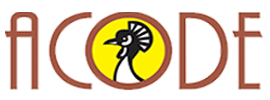About US
We are an independent public policy research and advocacy think tank based in Uganda, working in the East and Southern Africa sub-regions on a range of public policy issues. Our core business is policy research and analysis, policy outreach and capacity building. Recognised among the Top-100 Think Tanks worldwide in 2017 Global Think Tank Index published by the University of Pennsylvania. Since its founding 22 years ago, ACODE has emerged as one of the leading regional public policy think tanks in Sub-Saharan African.
As an independent organisation, ACODE does not align with any political party or political organisation. However, given the direct relationship between development policy and politics, we believe that our work is political and it must stand for certain political causes of a bi-partisan nature. Our work is strengthened through partnerships with relevant institutions that help us contribute solutions to issues and problems of a policy nature affecting citizens. We have active MoUs with key institutions which includes: Ministry of Water and Environment; Ministry of Local Government; Ministry of Finance, Planning and Economic Development; West Nile Development Association(WENDA); Uganda Local Governments Association (ULGA); Urban Authorities Association of Uganda (UAAU); Mbarara City Council; and Gulu City Council among others.
Why ACODE?
The founding of ACODE in 2000 was driven by the need to establish a premier independent public policy think tank in Africa designed primarily to bridge the gap between public policy, policy outreach, and policy implementation. Institutions that existed before were largely academic thinktanks that engaged in policy research and publishing policy-relevant information that remained on library shelves.
At the time of its established, the NGO terrain in much of Sub-Saharan Africa was slowly shifting from provision of social services that had dominated NGO work for decades to engage government in policy making processes. ACODE sought to link three key components that make public policies focus on the power and vulnerable sections of society.
